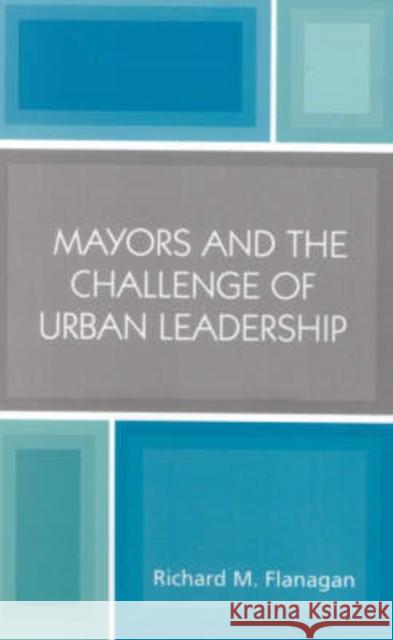Mayors and the Challenge of Urban Leadership » książka
Mayors and the Challenge of Urban Leadership
ISBN-13: 9780761828952 / Angielski / Miękka / 2004 / 230 str.
Big city mayors rank among the most powerful and colorful politicians in America. Yet few books focus on the leadership challenges the occupants of the office face. Mayors and the Challenge of Urban Leadership examines twelve case studies of mayoral leadership in seven cities, from the New Deal era to the beginning of the 21st century. The prospects for mayoral success or failure are driven by how mayors manage the fit between political commitments and the broader patterns of political competition. City Hall powerhouses like Richard J. Daley of Chicago (1954-76), David Lawrence of Pittsburgh (1946-58), Tom Bradley of Lost Angeles (1973-83), and Robert F. Wagner of New York (1954-65) came to power in times of political crisis. They realigned politics in their cities to reinvigorate municipal government and bolster their power. In contrast, mayors with less redoubtable reputations like Mayors Sam Yorty of Los Angeles (1961-73), Dennis Kucinich of Cleveland (1977-79), Jane Byrne of Chicago (1979-83), and Frank Rizzo of Philadelphia (1972-1980) were outsiders who lost their battles to challenge powerful political coalitions in their cities. The new breed mayors of the 1990s--among them Rudy Giuliani of New York, Dennis Archer of Detroit, and Ed Rendell of Philadelphia--used modern campaign and governing techniques and scored surprising policy and political victories as a result. Mayors and the Challenge of Urban Leadership concludes with a discussion of Mayor Michael Bloomberg of New York, elected in the aftermath of the 9/11 attacks, as an exemplar of the modern style of governing big cities in the 21st century.











